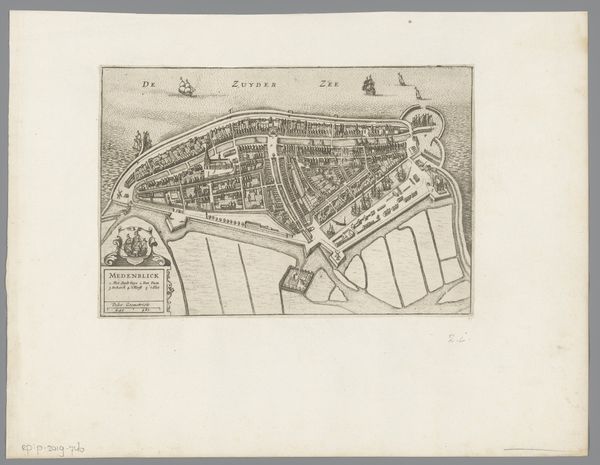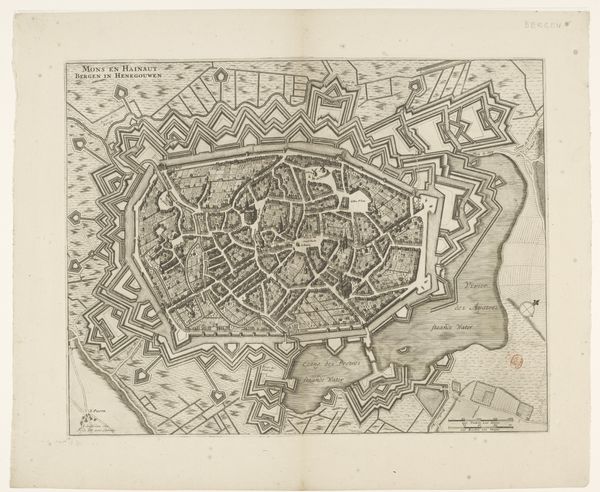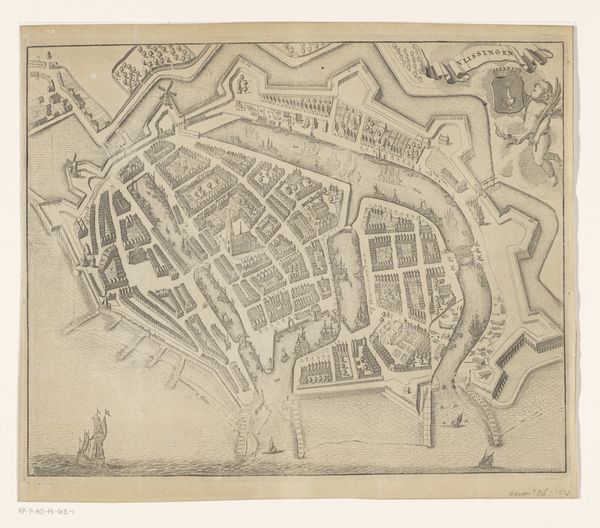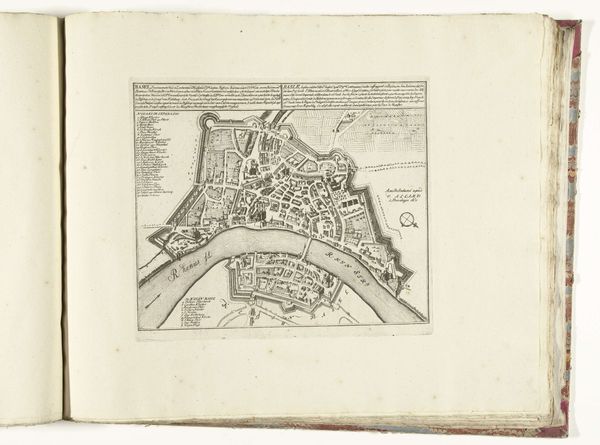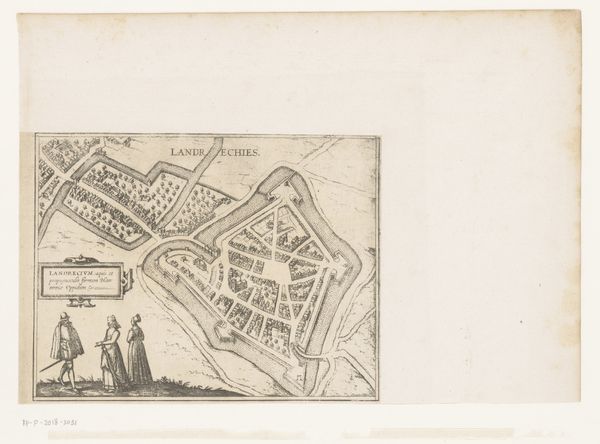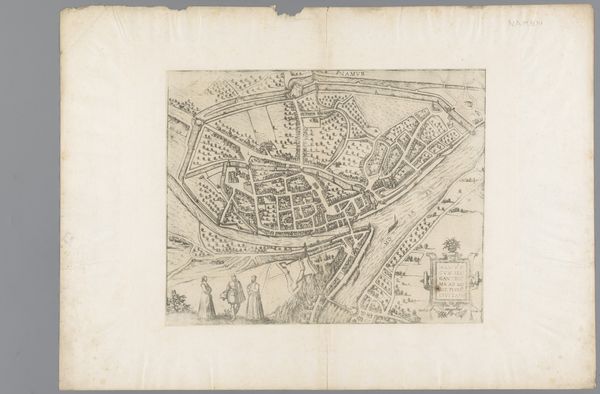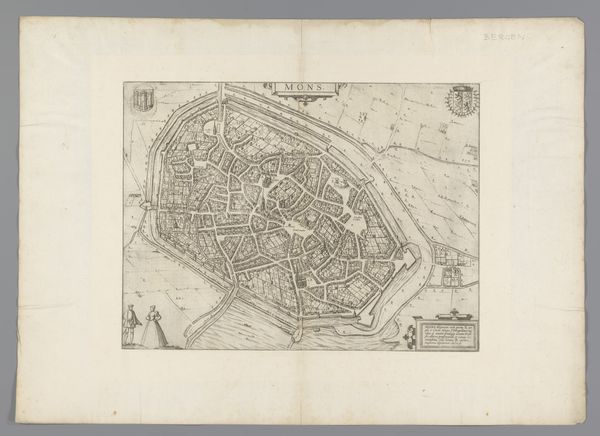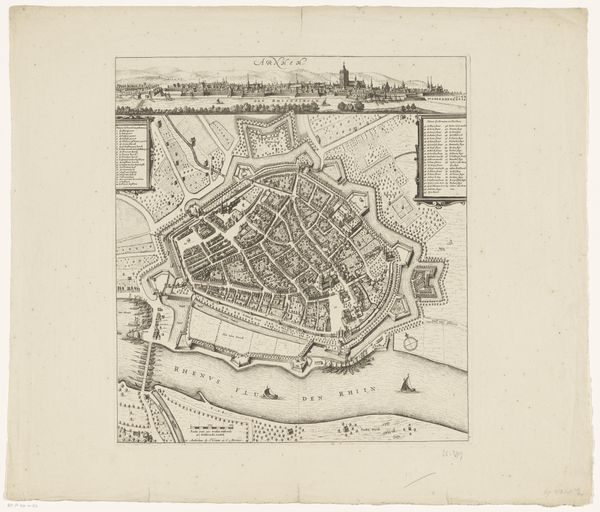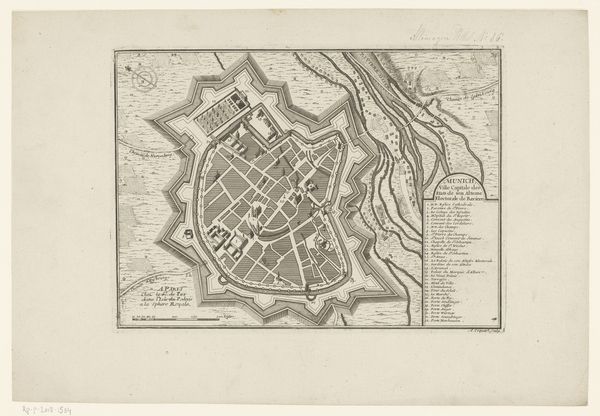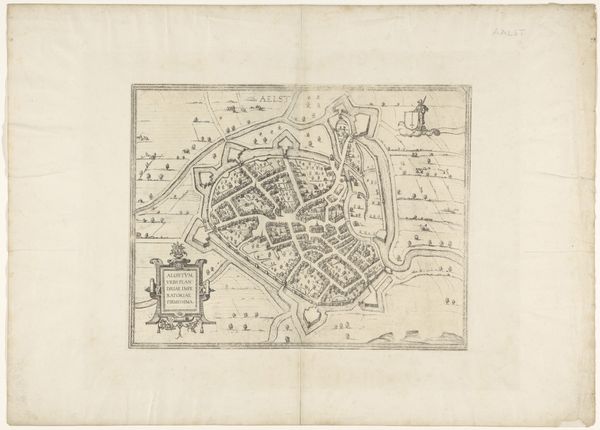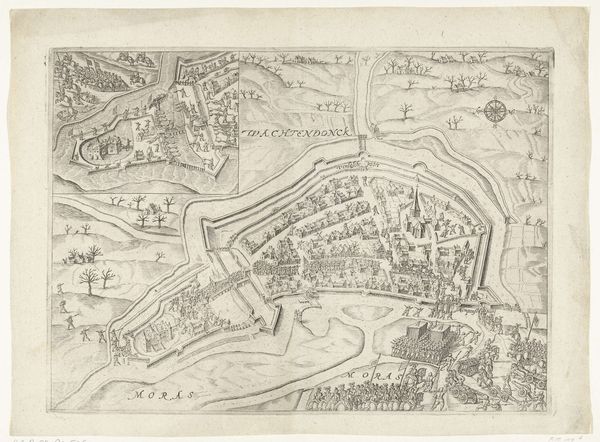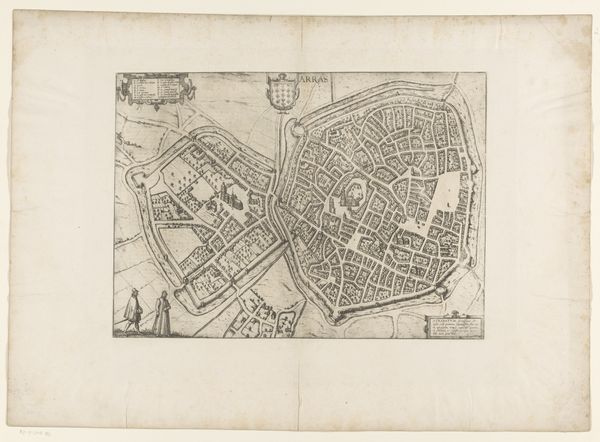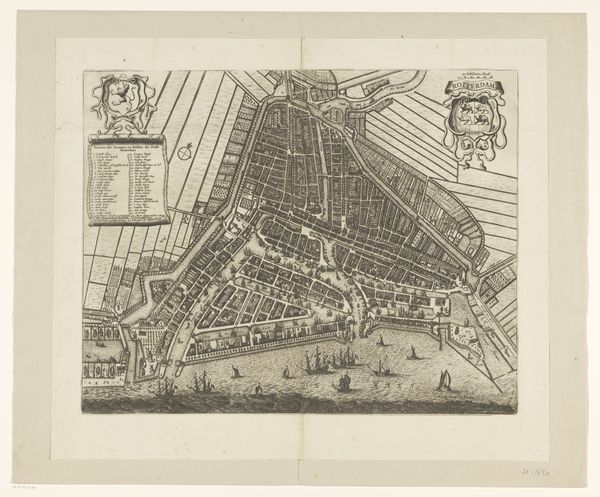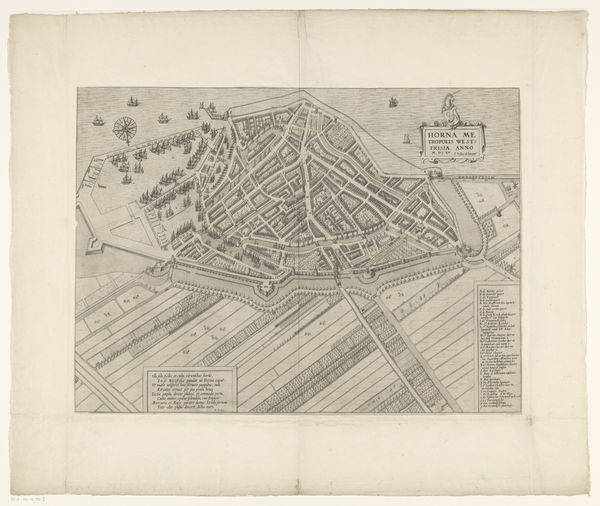
print, engraving
# print
#
pen sketch
#
old engraving style
#
line
#
cityscape
#
history-painting
#
northern-renaissance
#
engraving
Dimensions: height 210 mm, width 277 mm
Copyright: Rijks Museum: Open Domain
Pieter van der Keere made this print of Wachtendonk in 1603 using engraving, a printmaking technique dependent on careful labor. The image shows the town occupied by the Spanish. Engraving begins by cutting lines into a metal plate, usually copper, with a tool called a burin. This is skilled work, requiring years to master. The incised lines hold ink, and when the plate is pressed onto paper, the image transfers. Look closely, and you can see the fine, deliberate marks that define every building and fortification. The dense network of lines creates tone and texture, giving a sense of the town's layout and defensive structures. But more than a simple depiction, this print served a propagandistic function. It documented a moment of conflict, and also represented the town as a site of strategic importance. The act of engraving itself, with its precision and detail, lends an air of authority to the image, reinforcing its political message. The labor involved in producing such prints reflects the intense political and military efforts of the time.
Comments
No comments
Be the first to comment and join the conversation on the ultimate creative platform.
